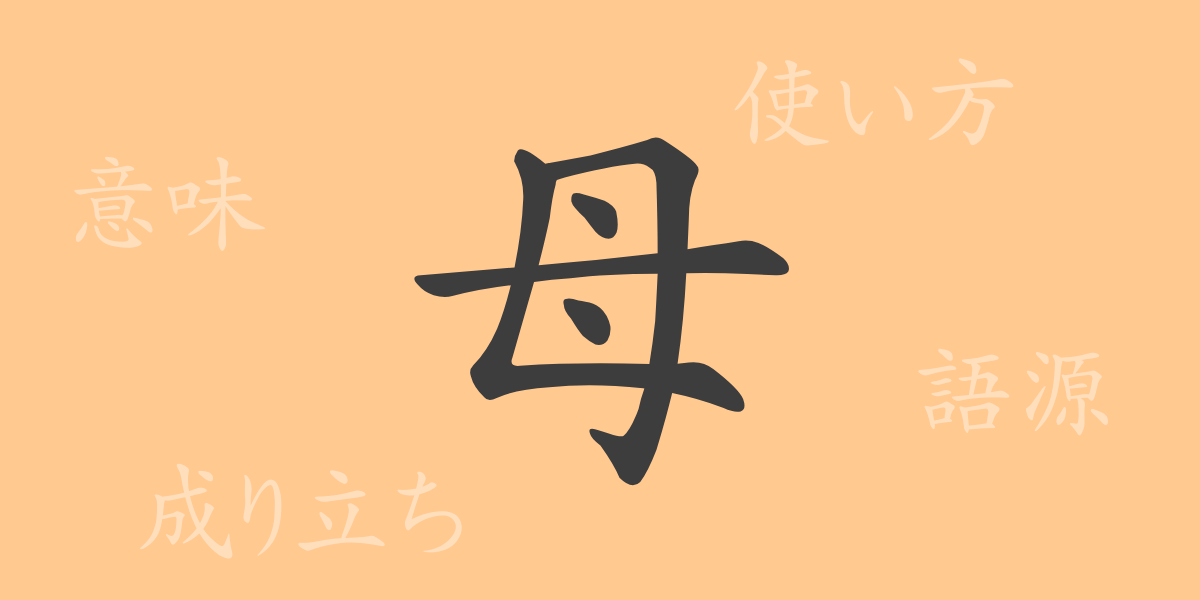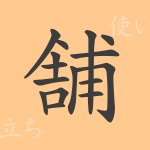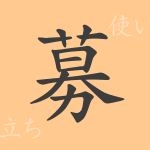The word “母 (haha)” is one of the most familiar and heartwarming words we start using from the moment we are born. In this article, we focus on the commonly used Japanese kanji “母 (haha),” delving into its deep history, meaning, usage, and the words and expressions that incorporate it. As you read on, you will rediscover the power of “母 (haha)” and the beauty of the Japanese language.
The Origin of 母 (haha)
The kanji “母 (haha)” is an ancient character, symbolizing a woman holding a child. Its origins can be traced back to oracle bone script, and it has been passed down from ancient China as an important concept meaning motherhood and the source of life. Over time, while the shape of “母 (haha)” as a kanji has changed, its essential meaning has remained intact.
Meaning and Usage of 母 (haha)
While the kanji “母 (haha)” is most widely known for meaning “mother,” it is also used to signify origin or root in words like “母国 (bokoku, motherland)” and “母校 (bokou, alma mater).” Metaphorically, it can also mean the source of creation.
Reading, Stroke Count, and Radical of 母 (haha)
The kanji “母 (haha)” has various readings in Japanese, with the basic readings as follows:
- Readings: On’yomi “ボ (bo),” Kun’yomi “はは (haha),” “かあ (kaa)”
- Stroke Count: 5 strokes
- Radical: 女部 (josei-bu, female radical)
Idioms, Proverbs, and Expressions Using 母 (haha)
Idioms, proverbs, and expressions that include “母 (haha)” are deeply rooted in Japanese culture. For example, “母心 (hahagokoro)” means a mother’s deep love and concern, and “母校 (bokou)” refers to one’s alma mater, especially a school to which one is particularly attached. The proverb “母の味 (haha no aji)” refers to the taste of a mother’s cooking or a nostalgic taste.
Summary of 母 (haha)
The meaning embedded in the single kanji “母 (haha)” evokes universal emotions that transcend cultures and languages. This simple yet powerful symbol continues to be used in our daily lives to express love, comfort, and a sense of belonging. We hope this article helps you feel the depth of the kanji “母 (haha)” and reappreciate the richness of the Japanese language.
“`

























